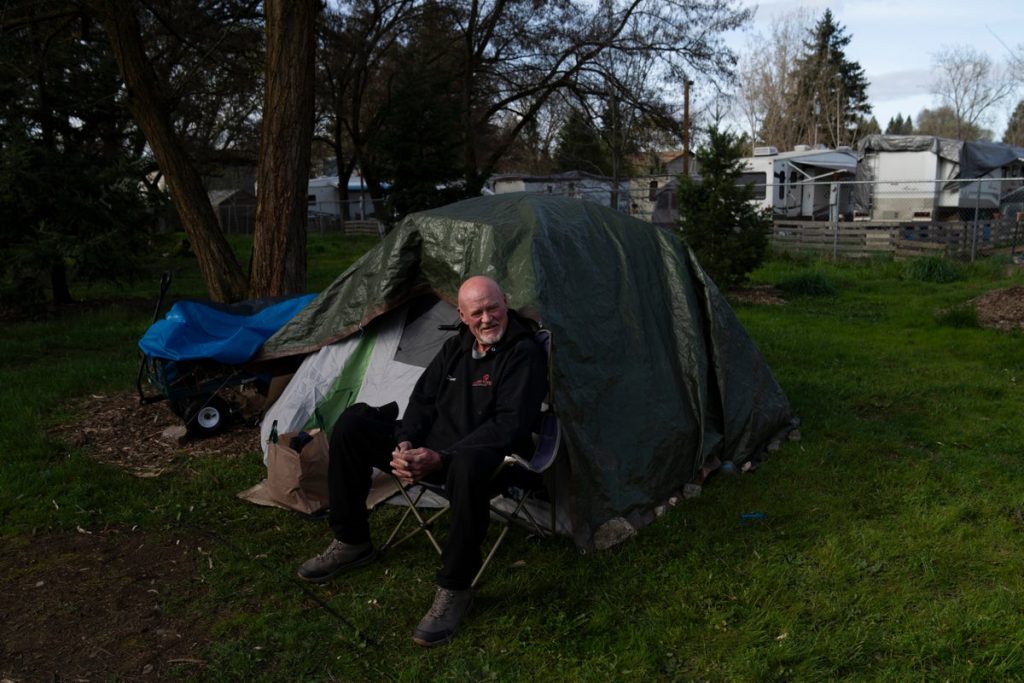The Supreme Court is currently considering a case that addresses the issue of homelessness in the United States. The case, City of Grants Pass v Johnson, focuses on whether cities can punish individuals for sleeping outside on public property when they have nowhere else to go. The plaintiffs in the case, a group of unhoused people in Grants Pass, Oregon, argue that the city’s ordinances that allow fines, tickets, or jail time for sleeping or camping on public property violate their Eighth Amendment right against “cruel and unusual” punishment. The city of Grants Pass argues that these laws were put in place to address safety concerns raised by locals, as there is a high number of people experiencing homelessness and a lack of affordable housing in the area.
The ordinances in question in Grants Pass include fines of up to $295 for sleeping with blankets, pillows, or cardboard boxes, with the fine increasing to $537.60 if unpaid. Repeat offenders can face additional penalties, including being banned from city property with the risk of jail time and fines. Critics argue that these ordinances criminalize homelessness and punish individuals for simply existing without permanent shelter. Federal judges in lower courts have sided with the plaintiffs so far, blocking the city from enforcing these ordinances. The Supreme Court’s decision, expected in June, will have far-reaching implications for how cities can address homelessness and whether punitive measures can be used against unhoused individuals.
The Ninth Circuit Court of Appeals previously ruled in Martin v City of Boise that cities cannot enforce anti-camping ordinances if they do not provide enough shelter beds. Following this ruling, an injunction was issued against Grants Pass preventing the enforcement of the anti-camping ordinances at night and requiring a 24-hour notice for daytime enforcement. Grants Pass has challenged this ruling, arguing that it infringes on local governments’ authority to address homelessness and regulate public spaces.
The debate around homelessness in Grants Pass is part of a larger national issue, particularly in states like California where more than 100,000 people are without permanent shelter. California Governor Gavin Newsom has filed a brief in the case, expressing concerns about the impact of lower court decisions on lawmakers’ ability to address encampment issues. However, advocates for the unhoused population argue that punitive measures do not address the root causes of homelessness and instead perpetuate cycles of poverty and marginalization. They call for solutions such as affordable housing, accessible services, and eviction protections to address the systemic issues contributing to homelessness.
Homelessness activists and legal experts are closely watching the outcome of City of Grants Pass v Johnson, as it could set a precedent for how cities across the country can approach homelessness policy. The debate highlights the need for a comprehensive and compassionate approach to addressing homelessness, one that prioritizes the rights and dignity of unhoused individuals. As the Supreme Court considers this case, the decision will have significant implications for the future of homelessness policy and the treatment of marginalized populations in the United States.


